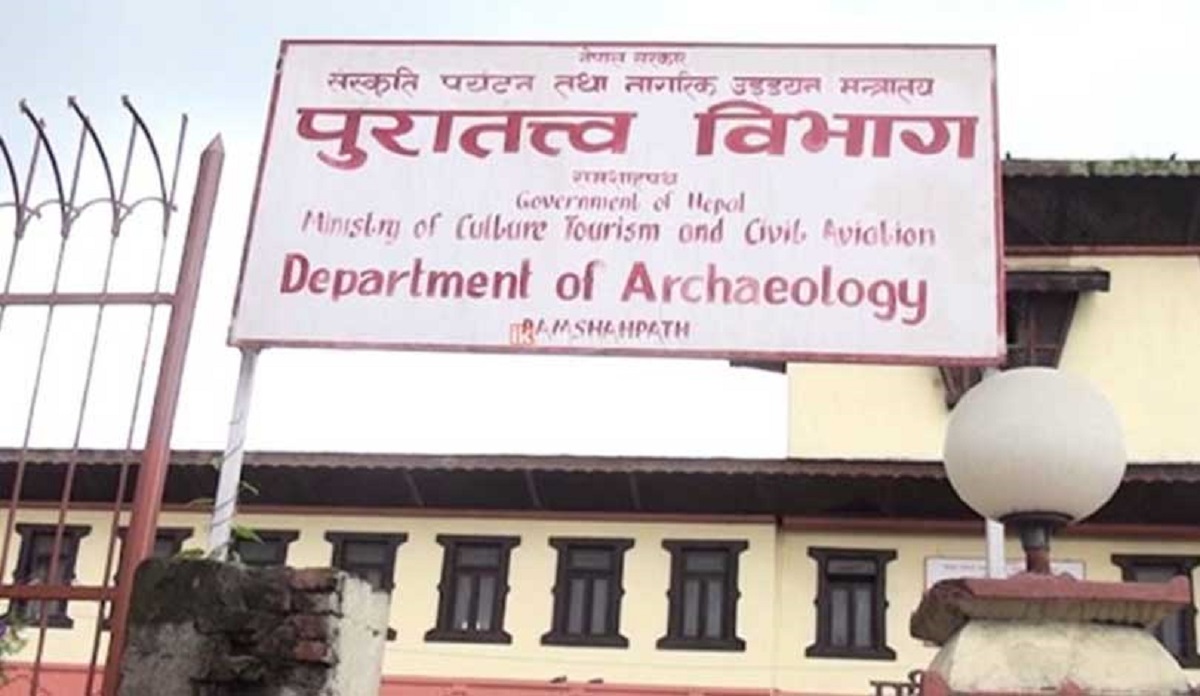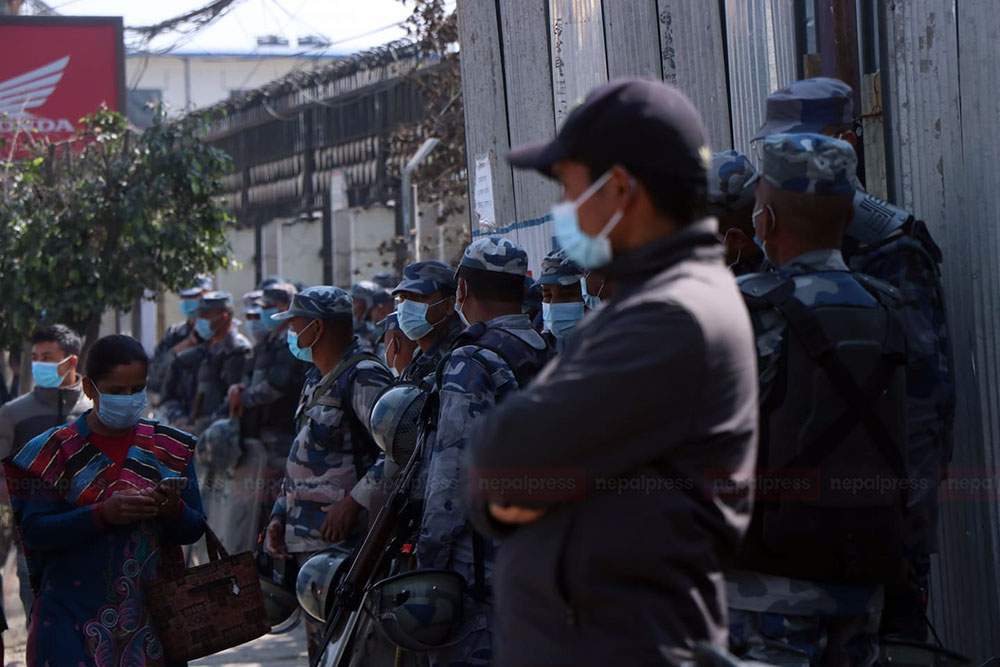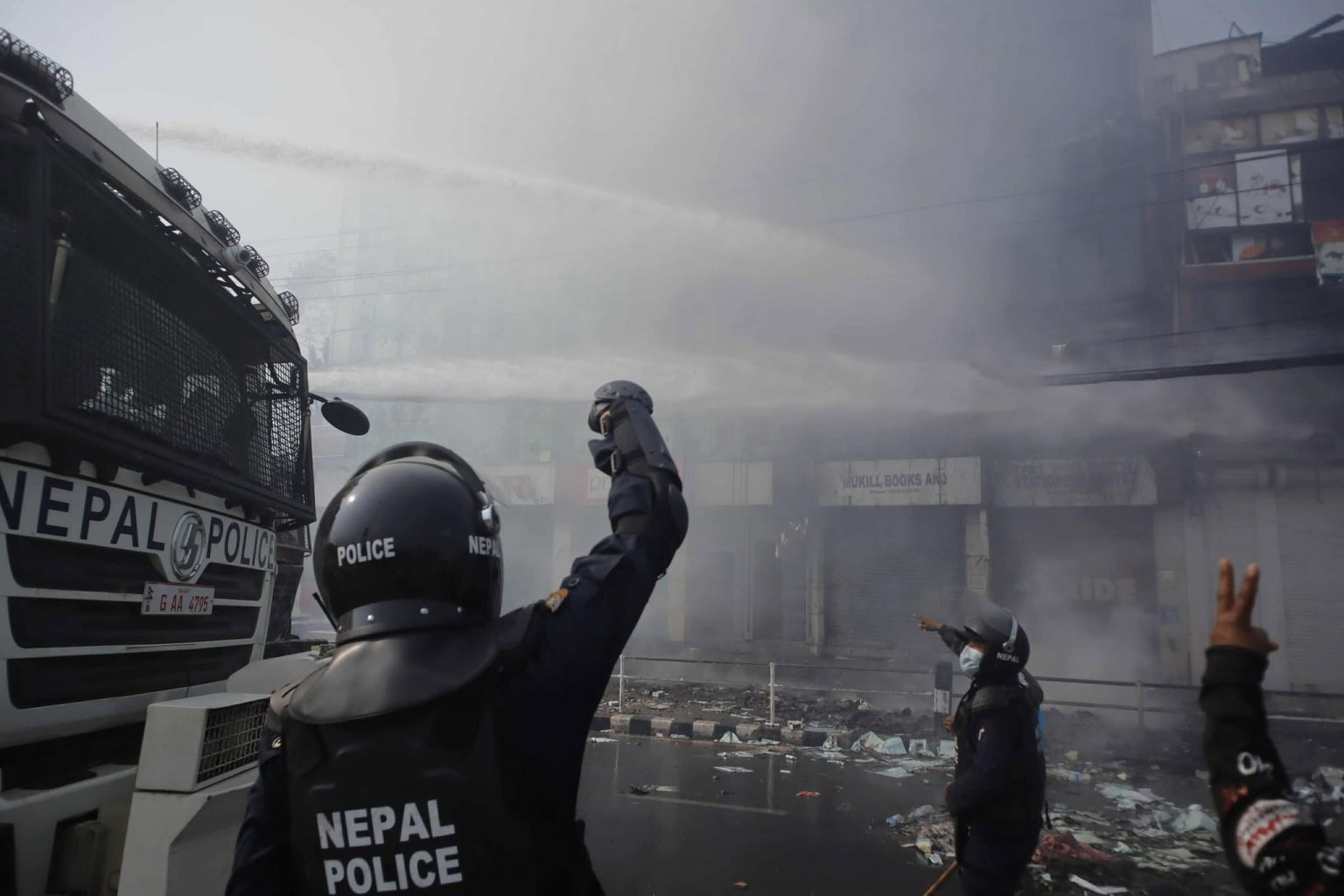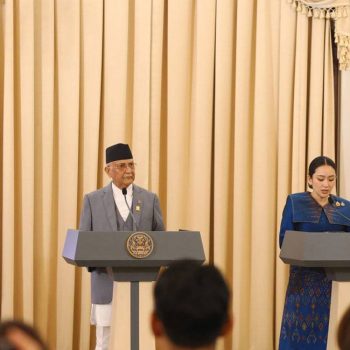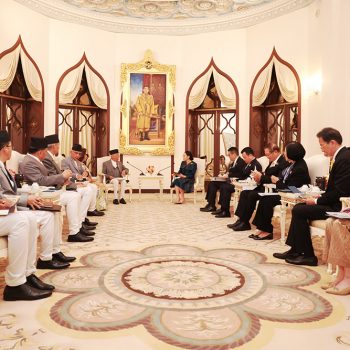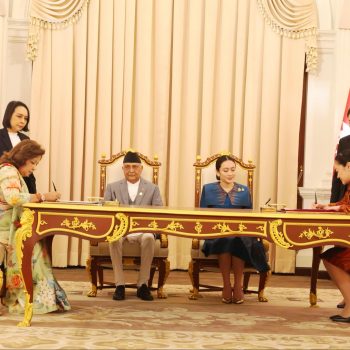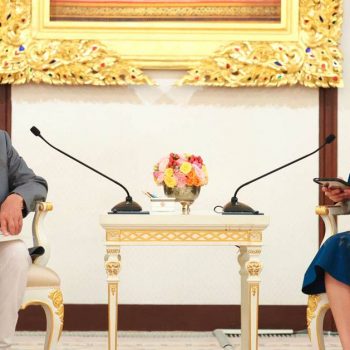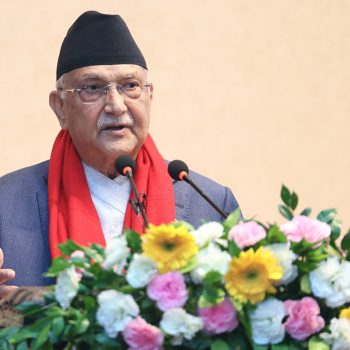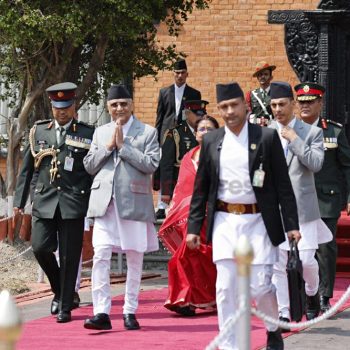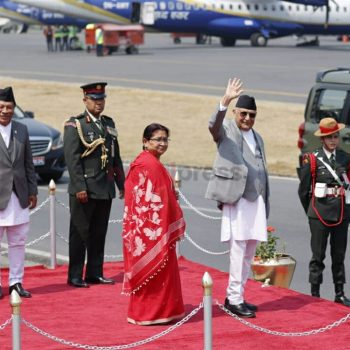Does Nepal’s ruling coalition want to please India and the US at the cost of pushing China away?
Kathmandu can become Brussels of South Asia through trans-Himalayan connectivity
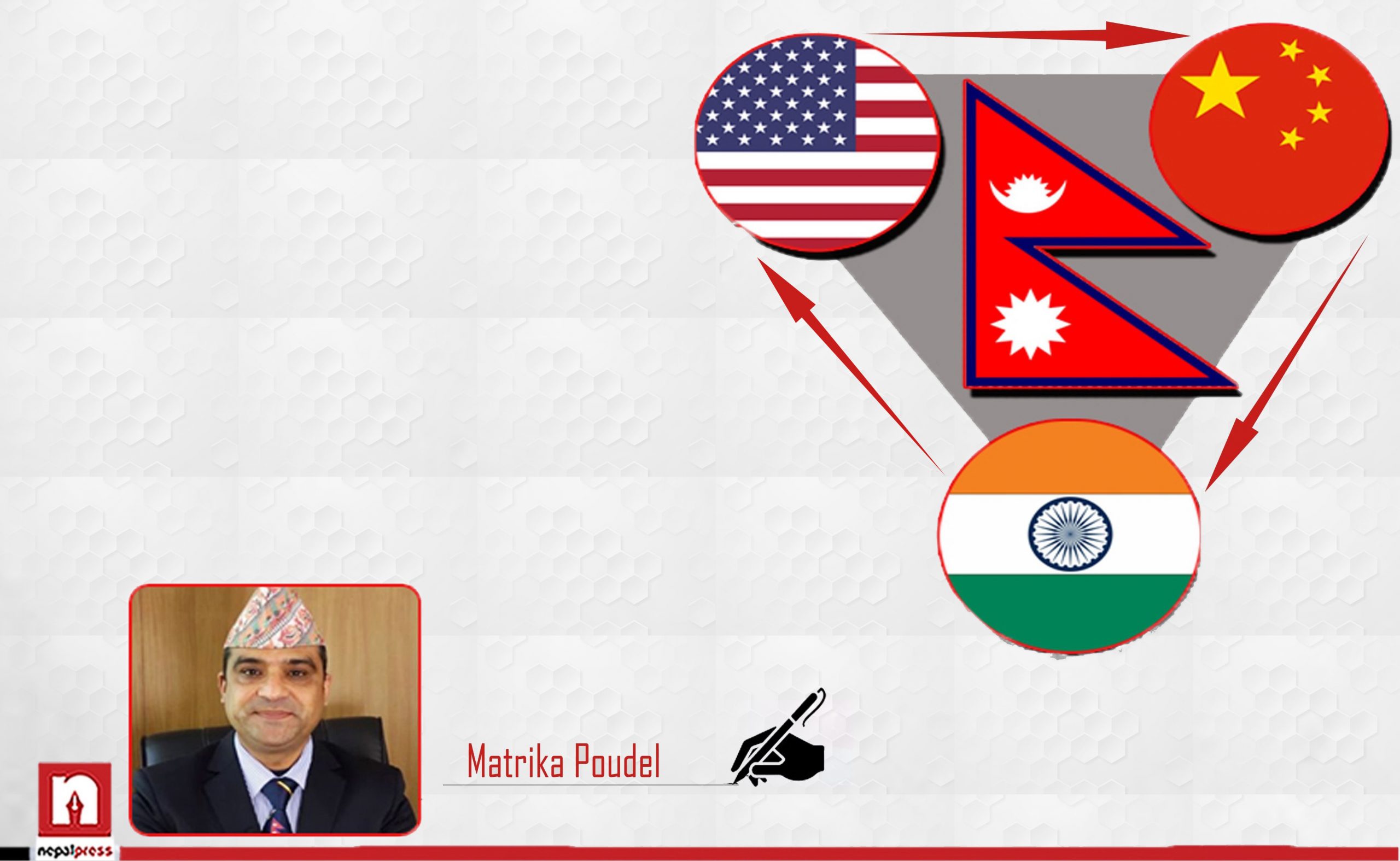
KATHMANDU: The main opposition CPN-UML Chairman KP Sharma Oli spoke for three hours in the Parliament meeting held soon after the completion of the local level elections and while taking part in the discussions over the government’s policies and programmes presented in the House.
The questions he raised in the Parliament about Nepal’s diplomatic imbalances were more serious than the issues he raised in the context of domestic politics.
CPN-Unified Socialist leader and former Prime Minister Jhalanath Khanal, who had protested many issues of domestic politics raised by Oli, not only criticised Nepal’s foreign policy and pro-American policy, he sounded like he was supporting the views of Oli at some points.
Like Oli and Khanal, CPN-Maoist Centre leader Narayan Kaji Shrestha also raised the issue of the government stepping out of its line in the diplomatic affairs in the National Assembly.
During the meeting of the House of Representatives, CPN-UML Deputy General Secretary Pradeep Gyawali, who had also served as the Minister for Foreign Affairs, asked the government whether it has backtracked from the One China Policy, and it was not a minor question. KP Oli and Jhalanath Khanal had also raised the same question from the rostrum.
The opposition statement
During the meeting, Oli said:
“It was a serious matter that the government stated in its policies and programmes that Nepal’s energy policy will be controlled. Will our energy now be under someone else’s control? Is this a normal thing? Then, the government in its policies and programmes said that the Budhigandaki Hydropower Project will be constructed with its own investment. Earlier, the rumour was circulated that KP Oli handed over the Budhigandaki Hydropower Project to China. The government led by the CPN-Maoist Centre and the Nepali Congress had made an agreement to award the Budhigandaki project to China after I resigned as the prime minister in 2016. Then the government changed, and the Deuba-led government decided not to award the project to China.
After I became the prime minister again, the Chinese government gave us permission and we have also invested in the project. The government’s recent decision will affect the bilateral ties between the two countries.
I held a meeting with concerned stakeholders and asked them to find out the truth behind the issue after I was told that it was not good to break the ties between the two countries unilaterally. The government has decided not to give the project of constructing the Budhigandaki to China this time. It seems the decision was made to please someone.”
The ruling side’s opinion
During the meeting, the Unified Socialist leader Jhala Nath Khanal said:
“Nepal is in between the two big countries. We have stated in our foreign policy that we will not allow our land to be used against our neighbours. The United States and China have had their own competition in recent times. The United States formulates Tibetan, Hong Kong and Uyghur laws. It even makes a special coordinator to look after Tibetan issues and why was that special coordinator invited to Nepal? Who invited her? Though we have stated in our foreign policy that we will not let our land be used against our neighbours, why is the US special coordinator for Tibetan issues invited to Nepal? Has our One China Policy changed in recent years? I have no idea. I am also a leader of the five-party alliance. I am surprised, who will benefit from this?
Who sent the special coordinator directly to the two Tibetan camps? Who made the programme? Are the ambassadors of three to four countries allowed to go there to welcome her or not? Is this a diplomatic norm? Are we being dominated just because Nepal is a small country? This is against the national interest. The prime minister should answer on the issue.”
Nepali land being used against China
The trust Nepal has gained so far is that the country is committed to the One China Policy and would not allow the Nepali land to be used against the neighbours. But, in recent times, Nepal has started deviating from its One China policy. The coalition government has given the freedom to carry out activities against China.
During her visit to the Tibetan camps, the US Undersecretary for Civilian Security, Democracy, and Human Rights and Special Coordinator for Tibetan Issues Uzra Zeya also held meetings with Tibetan leaders in those places and gumbas for hours. All these things were done with the knowledge of the government and this was against Nepal’s foreign policy.
Oli even raised questions in the Parliament about her visit to the Tibetan camps. Questions have been raised at once against the government, which extended support to Ukraine unnecessarily in the Russia-Ukraine war, for allowing the Nepali soil to carry out anti-China activities. Is US Undersecretary Zeya’s visit permitted by the government? If not, who gave the permission? Why did the government not express its dissatisfaction? Is it not a violation of the One China Policy and balanced foreign policy to allow the US official to visit Tibetan camps?
Not only the leaders of the opposition parties, but the leaders of ruling parties also raised questions against the government on the issue.
Ridiculously, senior leaders of the coalition CPN-Maoist Centre Chairman Pushpa Kamal Dahal and CPN-Unified Socialist Chairman Madhav Nepal have not spoken anything about the imbalanced foreign policy.
It seems Dahal and Nepal have been supporting silently to carry out activities against China.
Nepal has started facing geopolitical pressures. Nepal, which is in between the two great powers of the world, should understand the geopolitical complexities and should act wisely to protect itself.
But, the recent developments have shown that some elements are hatching a conspiracy to drag Nepal into a controversy. The International Relations Committee of the House of Representatives should summon the Prime Minister and the Foreign Affairs Minister and ask them to furnish clarification on the geopolitical issue and imbalanced foreign policy.
The activities of the coalition that will have long-term effects on the country will not be acceptable. But, the military, political and diplomatic officials of the United States have been carrying out anti-China activities in Kathmandu in recent times. The government is either unaware about it or pretending like it knows nothing.
The MCC-BRI clash
The US pressure on Nepal, threatening Nepali leaders through telephone and in-person before the ratification of the Millennium Challenge Corporation (MCC) and the US interest on Nepal after the Parliamentary ratification of the $500 million pact have posed threats to China. Following the ratification of the MCC, the US has not only increased economic activities but also the political and military ones in Nepal precipitously.
Prime Minister Sher Bahadur Deuba is preparing to visit the United States while US Army’s Pacific Commanding General Charles Flynn arrived in Kathmandu on a four-day visit to Nepal recently.
In another context, Maoist Centre Chairman Dahal had said that forming a coalition government by toppling the KP Oli-led government would be comfortable for the United States, India and China among others. The recent diplomatic activities, statements and decisions of the coalition government have made India and the US comfortable while making China uncomfortable.
Hinting at the same, Oli in the Parliament said Nepal’s foreign policy is in jeopardy while Jhala Nath Khanal and Narayan Kaji Shrestha said that the government was confused about the One China Policy.
All these issues were brought to make it clear that Nepal’s diplomatic balance has been affected. The government has been carrying out activities to irritate China and to please the world powers who are against China.
Chinese officials have been expressing their concern through their own channels. The main question is, why is the government allowing Nepali land to use against its neighbours?
Soon after the formation of the coalition government, decisions have been made against China. The government has decided not only to snatch the Budhigandaki project from China but also decided to remove Chinese contractors from many projects. During the election campaign, the Prime Minister had said that India would not purchase electricity from Nepal if the West Seti Project was given to China. Hence, he said that the project would be given to India. He has already made the decision from the Investment Board, of which he is the chairman.
In addition to that, the Prime Minister has spoken more serious things about the BRI. Nepal had signed an agreement in the BRI when Nepali Congress current spokesperson Prakash Sharan Mahat was the Foreign Minister.
Now, the Prime Minister has said that the BRI is a loan project and has been saying that Nepal will not take a loan from the BRI. The project was not even included in the government’s policies and programmes.
What is the obligation of the Prime Minister that the government is not willing to move ahead with the programmes as per the BRI agreement but is also ready to put the coalition at stake to ratify the MCC agreement? The main question is, why is it necessary to ignore China while expanding relations with the United States?
At a time when it has been said that the MCC is not a part of the Indo-Pacific Strategy, why has the military diplomacy between Nepal and the US been prevailing of late? Instead of the US Department of State, the Department of Defence is making all the preparations of the Prime Minister’s visit.
Is Nepal deviating from the One China Policy? Is Nepal backtracking from the policy of not allowing its land to be used against its neighbours and seeking development assistance from China?
China’s main concern is also the same. The Nepali Congress has become the first party after the local level elections by winning more seats than the UML. It is certain that the current ruling coalition will go against the UML in the upcoming parliamentary elections too.
The government’s recent decisions have shown that Nepal is trying to get away from China to make the United States and India happy.
While going through the remarks of the Chinese diplomats and professors, they have understood that the United States and India have started showing interests in Nepal after the formation of the coalition government. The government should clarify this issue and should assure China.
While saying that the country has achieved big success by endorsing the MCC, the coalition should also hold a national debate on the BRI. If the coalition thinks that the BRI is a loan project as said by the Prime Minister, the government should take the decision to exit from the BRI.
This will be a more serious issue if the government has decided to take loans and development assistance only from certain countries.
China out, India in
It has been clearly seen that the government is in favour of the MCC and against the BRI agreement. Likewise, the government is adopting a policy to establish India by displacing China from big projects. China has been feeling embarrassed by the government’s decision to award the construction of West Seti to an Indian company on one hand and to scrap the contract with China to construct the Budhigandaki and West Seti projects on the other.
When Narayan Kaji Shrestha raised this issue in the meeting of the coalition, the Prime Minister expressed his reluctance to reply. Pushpa Kamal Dahal and Madhav Kumar Nepal remained silent.
During the Parliament meeting, the main opposition party leader KP Oli accused the government of adopting a policy against the neighbouring countries. Nepal’s foreign policy will be in crisis if the senior leaders of the coalition do not respond to such serious questions.
Is Nepal now under double pressure from India and the United States? Is Nepal under pressure to infuriate China and to please India and the United States? The government should inform the people. The government should not take lightly the questions raised seriously in the Parliament.
In a recent interview with BBC, Professor Hu Shisheng, a South Asian expert in China, said that Nepal and China would have to face major challenges in the Tibet issue.
He warned that the pressure Kathmandu has been facing from the United States and India on the Tibetan issue and the government’s decision to ratify the MCC and overlook the BRI will have a long-term effect on Nepal.
The government has not been taking our foreign policy, especially neighbourhood policy seriously in recent times which is not good.
Envisioning Kathmandu as Brussels of South Asia
It is also a geopolitical imbalance that Nepal as a country seems to have given priority to the MCC more than the BRI project. Many big infrastructure projects will be constructed under the BRI. But, the coalition government has taken the BRI as the loan project and is preparing to get out of the BRI.
When the Gautam Buddha International Airport is on the verge of completion, the government scrapped the contracts of big projects with China and awarded them to India, and it sent a bad message.
However, Nepal can benefit from big projects in hydropower, airport and railway sectors among others. Why did the BRI not fall under the priority of the coalition government at a time when China has been trying to help Nepal under the Trans-Himalayan Connectivity Project? There are many things hidden in this question.
With the ratification of the MCC, the main concern of China is that Nepal will now leave the BRI Project or it will not take the project ahead. Earlier, the Chinese Foreign Ministry spokesperson had said that Nepal would not benefit from the MCC.
Why do Nepal not want to be a part of the Trans-Himalayan Connectivity Project? Why is Nepal reluctant to take Chinese assistance to make Kathmandu as Brussels of South Asia? But, the questions pertaining to the issue have not been answered yet.
During a conference held in Lhasa three years ago, Chinese government officials and experts had floated a concept of making Kathmandu as Brussels of South Asia through Himalayan cross-border transport connectivity. They claimed that Kathmandu would be the Brussels if other countries of South Asia started trading with China through Nepal.
But, instead of supporting this project, the coalition government is hell-bent on exasperating China, which will have a long-term effect. The Chinese fear that the Nepali Congress will win the upcoming elections with the help of communist parties and will carry out more activities to ire China.




